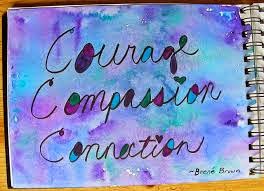For me, there
are two main aspects to peace: the quest for inner peace; and a striving
towards peace in the world.
 |
| image by Karen Heidi Rees |
The first can sound a bit like an advertising slogan: 'Inner peace
and how to find it.' I have come to realise in recent years that inner peace is
one of the most difficult things to obtain, and yet harder to hold on to. And
I'm not the only one by a long way. Go into any bookshop, and look in the Mind and Spirit section. You will
find the shelves groaning with titles like The
Little Book of Calm or Chicken
Soup for the Soul or De-stress
Your Life in 30 Days (I made the last one up, but I'm sure that
such a title exists). And there are DVDs you can buy to teach yourself yoga or
pilates to regain control of your life.
But as a Quakerly-inclined Unitarian, I
believe that there has to be a God-element as well. I love the words of our
Unitarian hymn (by John Andrew Storey):
"I sent my soul some truth to
win; / my soul returned these words to tell: / 'Look not beyond, but turn
within, / For I myself am heaven and hell.
And as my thoughts were gently
led, / half-held beliefs were seen as true; / I heard, as new, words Jesus
said: / 'My friend, God's kingdom lies in you.
Now though I labour, as I must / to build the kingdom yet to be, / I know my
hopes will turn to dust, / if first it is not built in me."
How can we attain inner peace in
the hurly-burly of everyday life? Most of us spend our lives rushing around
from one task to the next - work, shopping, looking after the children,
housework, laundry, socialising - the list is endless. People find it more and
more difficult to relax, and to attain inner peace, because they've forgotten
how to stop.
But we're not supposed to be like
this. Every person needs to have some time to centre down, to be at peace, to
recharge their emotional and spiritual batteries. I believe that one of the
most important of God's creations is the Sabbath - a time to rest, to re-group,
and come back to our everyday lives refreshed. One reason why my faith is so
important to me is that it has taught me that there is another way of living your life, even if I don't
follow it all (or even most of) the time.
There are times when being busy,
busy, busy just gets too much. The thought crosses your mind "Stop the
world! I want to get off!" But it won't stop, so you have to consciously
make the effort to schedule some time to step off the treadmill. It may take a
little creative selfishness to realise that you are quite entitled to do this,
and quite a bit of planning to reschedule your activities, and find a free
time-slot, but it can be done. It doesn't have to be a long time, this
'Me-time', even ten minutes can be enough (depending on what you are doing) it
just needs to be regular and consistent.
What you do in your me-time will
depend on you. Many people find that meditation works for them - sitting in
silence, following their breath, and emptying their minds. I have some prayer
beads which I made at Summer School a few years ago, and they really help me to
focus, and to let everyday life go.
Prayer can also lead to a deep
sense of inner peace. I have friends who do this, and I am sure that it helps
them to see more clearly and live their lives more serenely. Many people find
that listening to a piece of really beautiful music can whirl their minds away,
and they come back to earth with a bump at the end of the record. Reading
something inspirational may also help - this is something I do a lot, to remind
myself of what I'm supposed to be doing, and to regain my perspective.
Physical exercise is also a good
way of achieving inner peace. I know that sounds weird, because flogging up and
down a swimming pool or playing a game of football may seem the complete
opposite of peaceful. But certain forms of exercise really do help you to relax
and centre down. Yoga is an obvious one - the fact that you have to concentrate
on your breathing clears the mind wonderfully. Personally speaking, I find that
going for a gentle run is one of the best stress-busters in the world. If
you're not pushing yourself too hard, and can get into an even rhythm, running
can be very cathartic.
Going for a walk is another good
method of relaxing and centring down. Again, the rhythm of your strides can be
soothing, and if you start to pay attention to what you are seeing around you,
there is beauty almost everywhere - whether it's a mountain, a star, a sparkling stream, or the bark of a tree, the ever-changing sea, or the architecture of a particular
building. Many people find that a spot of gardening, or doing a craft that you
love, can have the same effect, if you do it in the right frame of mind.
All these things can bring you, in
Sidney Lovett's words, "wisdom and patience and solace, and, above all,
the assurance that you are not alone in the world."















